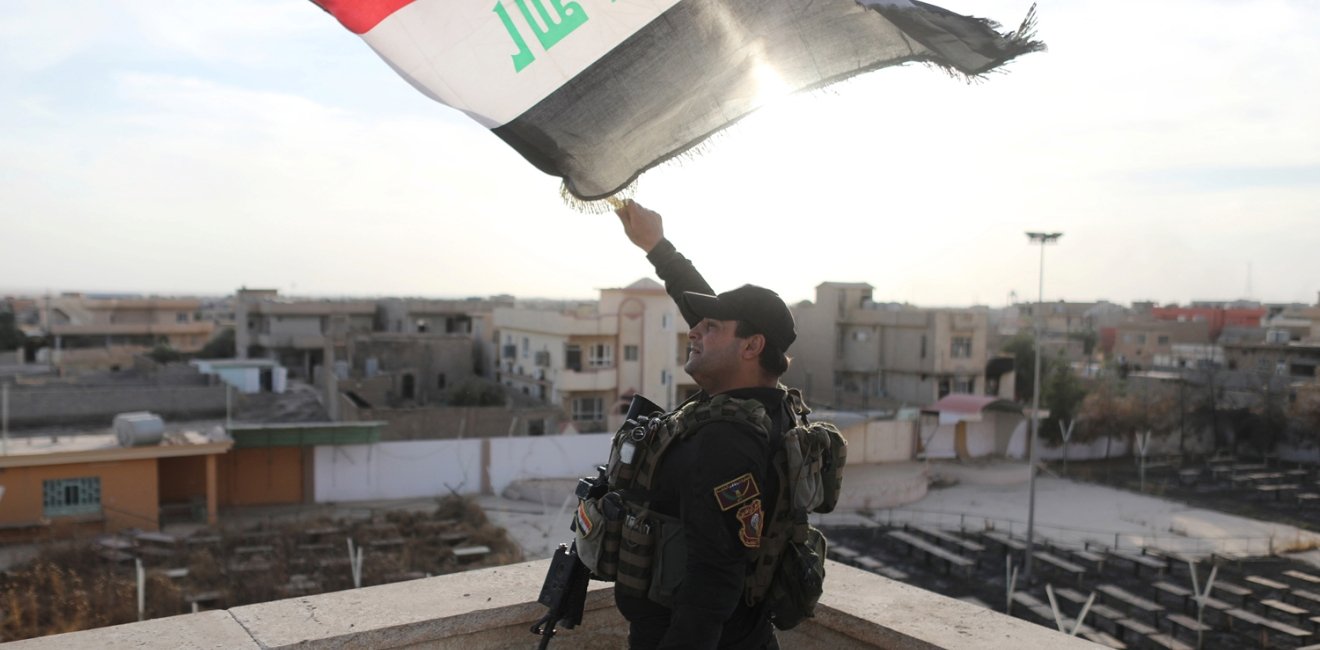A Post-ISIS Recovery Plan for Syria
Recognizing and supporting a provisional government in opposition-controlled Syria could cool down the conflict while keeping pressure on Assad.
Recognizing and supporting a provisional government in opposition-controlled Syria could cool down the conflict while keeping pressure on Assad.

The Mosul operation to defeat ISIS is now underway. After Mosul, U.S. and coalition efforts will concentrate on Raqqa in Syria, ISIS’s putative capital. When Raqqa falls, ISIS will cease to control any sizeable territory and will have been dealt a deathblow. But Syria will continue to be mired in a civil war that has made refugees of half of its population.
With the Iranians and the Russians fully backing Bashar al-Assad in Damascus, it’s clear that the chances of regime change there anytime soon are zero. In the meantime, cities and the countryside continue to be ravaged as more civilians perish. Assuming that Raqqa will be liberated in the early days of the next administration, what happens next?
It is time to think about another solution—one that freezes the fighting, creates structures allowing for displaced civilians eventually to return home, and provides an opportunity to negotiate a long-term solution. The way forward may entail looking back to the past. On November 13, 2012, in an ornate room at the Élysée Palace, French President Francois Hollande recognized the newly formed Syrian opposition as the “future provisional government of Syria.” In the four years since, other countries, including the United States, have also recognized this putative future Syrian government. Beset by divisions, foreign interference, the rise of jihadist groups and especially ISIS, the opposition has failed to provide a clear vision, much less threaten the regime.
Currently the regime, with Russian backing, has the initiative. It is besieging what is left of Aleppo, which may succumb to the relentless strikes by air and artillery. After Aleppo it may push to retake territories lost along the Damascus-Aleppo road. However, the regime forces are also exhausted, depleted, and in need of a respite.
It is time to think about another solution—one that freezes the fighting, creates structures allowing for displaced civilians eventually to return home, and provides an opportunity to negotiate a long-term solution.
The coming defeat of ISIS should be used to launch a new initiative. The United States and its myriad of allies in Syria can, together with a strengthened provisional government, push for a rebuilding effort in opposition-controlled areas. Admittedly, the main cities and more habitable lands are in the government-controlled western parts of Syria. Still, the opposition-controlled regions are quite extensive, commanding the Euphrates River and the area near the Mosul Dam; this territory’s borders with Turkey, Iraq, and Jordan provide anti-regime forces access to the rest of the world.
Once ISIS is defeated, the opposition’s provisional government can declare a unilateral ceasefire with the regime, set up its capital, evacuate Aleppo if the city has not completely fallen, and declare that from then on it will focus on rebuilding Syria with the help of the international coalition. The coalition can then help set up the administrative structure and provide the wherewithal to rebuild and expand the towns, villages, and infrastructure, while also organizing a new fighting force from would-be volunteers to ultimately constitute a security force. In the meantime, the United States and its allies will warn the Assad regime to respect the ceasefire and not to attack this area. Failure to heed would mean punishing retaliatory strikes, which could come in any form.
In effect, this is a call for a de facto, but temporary, partition of Syria. The hope is that, as the liberated areas are consolidated, rebuilt, and protected, some Syrians abroad will start returning, thus relieving the pressure on countries with large refugee populations. In some parts of Syria, there is already an incipient infrastructure in the form of local councils organized to deal with problems from trash collection to education and even economic development. Turkey, in particular, will benefit from the reconstruction efforts given its large potential in this area. Still, Turkey ought not to be the only beneficiary. Others, such as the South Koreans and Japanese, also possess considerable construction capabilities and capital to go along with it. Flooding free Syria with foreigners will also deter the regime from restarting hostilities.
This division of Syria, even if temporary, will add to the pressure on Assad, especially as the number of countries that recognize the new government increases. It will also give rise to a more robust interlocutor for the Assad regime at the negotiating table.
This plan is by no means without complications. What to do with the likes of jihadist groups such as Jabhat al-Nusra? How does one reconcile the Turks and Kurds in Syria? The latter have earned not only a seat at the table by being on the front lines in the fight against ISIS; they also constitute a stabilizing force within Syria.
Some will object that this proposal could open the way to a permanent partition of Syria. Unlike the divisions of Germany and Korea, which were ideologically motivated, in Syria what divides the population is the leadership. A strengthened provisional administration that controls and governs territory will be more appealing to other Syrians and constitute a more significant challenge to Assad. The alternative is continued carnage and more refugees.
The opinions expressed here are solely those of the author.
This article was originally published in The American Interest.


The Wilson Center’s Middle East Program serves as a crucial resource for the policymaking community and beyond, providing analyses and research that helps inform US foreign policymaking, stimulates public debate, and expands knowledge about issues in the wider Middle East and North Africa (MENA) region. Read more


